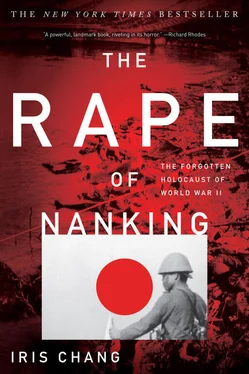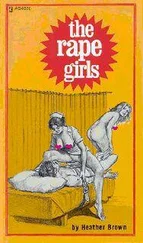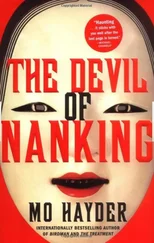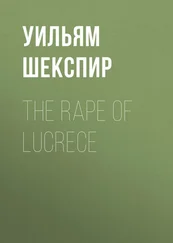Questions nagged me at every turn. Did Rabe actually show the film and the report to Hitler? Or did he, God forbid, get sucked deeper into the Nazi machinery in Germany and contribute to the extermination of the Jews? (This I highly doubted, given his record of heroism at Nanking, but the possibility remained.) Perhaps he had been thrown in prison after the war. Or perhaps no one had ever heard from him again because he became a fugitive from the law, living out his remaining years in a Latin American country. I also wondered whether he had kept a personal diary of the Nanking massacre. But if he kept such papers, they must have been destroyed during the war, incinerated perhaps in an air raid; otherwise, any such diary should have ended up in archives by now, available to the rest of the world. Still, I figured that it would not hurt to write some letters to Germany to see what I could find.
I possessed one important clue about Rabe: he had been apprenticed in Hamburg around the turn of the century. Perhaps he had been born there and still had family in the city. Somehow I had to establish contact with a key source in Hamburg. I turned to an old friend for help. John Taylor, whom scholars called “a national treasure,” had worked more than half a century at the National Archives in Washington, D.C., and knew just about every serious historian in the world. If there was an expert somewhere on the planet who had studied the history of the German community in China during World War II, Taylor would probably know who he was. Taylor suggested that I contact the historian Charles Burdick of Ferndale, California. Burdick in turn suggested that I write to the city historian of Hamburg; he also gave me the address of Martha Begemann, a friend of his and, he assured me, a “lovely lady” who was not only well connected in the city but generous with her help. Within a few days I wrote to Begemann about the Rabe mystery as well as to the editor of the largest newspaper in Hamburg, hoping that the latter would run a notice about my search. Then, expecting no immediate reply from either of them, I turned my attention to other things.
To my surprise, a letter came back from Begemann right away. Through a fortuitous chain of events, she had already located Rabe’s family. “I am happy I could help you, and it was not so very difficult,” she wrote on April 26, 1996. “First of all I wrote to Pastor Müller, in Bavaria, who collected the whereabouts of all former Germans in China. He promptly rang me up the other day telling me the names of Dr. Otto Rabe, son of John Rabe, and his sister Margarethe.” She enclosed in her letter a message from Ursula Reinhardt, Rabe’s granddaughter in Berlin.
From that moment on, things moved swiftly. Ursula Reinhardt, I learned, had been born in China; as a little girl, she even visited Nanking only months before the city fell. She was Rabe’s favorite granddaughter. To my delight, Reinhardt proved endlessly helpful to my inquiries and sent me many long letters. With handwritten text, photographs, and news articles, Reinhardt filled in some of the missing details of Rabe’s life.
Rabe kept his promise to the Chinese that he would inform the German authorities of the Japanese horrors in Nanking. On April 15, he and his wife returned to Germany, where he received numerous accolades for his achievements. In Berlin the German secretary of state officially commended Rabe for his work in China; Rabe was awarded the Service Cross of the Red Cross Order. In Stuttgart he was further decorated, receiving the Silver Poster for Service to Germany Award and the Diamond Order Award on a red, white, and blue necklace from the Chinese government. That May, Rabe publicized the Nanking massacre by lecturing and showing John Magee’s film all over Berlin, speaking before packed audiences at the Siemens Company, the Ministry of Foreign Affairs, the Association for the Far East, and the War Ministry. Rabe failed to secure an audience with Adolf Hitler, however, and so on June 8 he sent a letter to the fuehrer, along with a copy of the film and a typewritten report on the Rape of Nanking.
But if Rabe had expected a sympathetic response from Hitler, he was gravely mistaken. A few days later two members of the Gestapo arrived on his doorstep to arrest him. Ursula Reinhardt was there when it happened. She was seven years old, trying on a pair of new roller skates near the door when she saw two official-looking men in black uniforms with white lapels take Rabe away to a waiting car. “My grandfather looked embarrassed and the two men very severe and stiff so that I didn’t even dare hug him farewell.”
Rabe was interrogated for several hours at Gestapo headquarters. The Gestapo released him only after his employer, Carl Friedrich von Siemen, vouched for his character and promised them that Rabe would refrain from talking of the Japanese so openly. Rabe was warned never to lecture, discuss, or write on the subject again and, most of all, never to show John Magee’s film to anyone. After Rabe’s release, the Siemens Company immediately sent him abroad, probably for his own protection. For the next few months Rabe worked in Afghanistan, helping German nationals leave the country by way of Turkey. In October the German government returned his report but kept the copy of John Magee’s film. (Rabe never found out whether Hitler read the report or saw the film, although his family today is convinced that he did.) The German government informed Rabe that his report was sent to the Ministry of Economics, where it was read by the highest circles of government, but that he should not expect any change in German foreign policy toward Japan because of it.
The next few years proved nightmarish for Rabe. His apartment was bombed out, and the Russian invasion of Berlin reduced his family to poverty. Ursula Reinhardt is convinced that they survived only because they were living in the British, not the Soviet, section of Berlin. Rabe continued to work sporadically for the Siemens Company, translating economic correspondence into English. But the low wage was barely enough to keep his family alive.
The immediate postwar period for Rabe must have been one long string of angry accusations. First he was arrested by the Soviets, who interrogated him for three days and nights before the unrelenting glare of klieg lights. Then he was arrested by the British, who grilled him for an entire day but later gave him a work permit. (The permit, however, had little value for Rabe because the Siemens Company still did not have a permanent position for him.) The final humiliation came when a German acquaintance denounced Rabe and propelled him into a long, drawn-out “de-nazification” process; he had to pay for his own legal defense, in the process losing his work permit and depleting his savings and energy. Crowded into one tiny room with his family, fighting cold and hunger, Rabe was forced to sell, piece by piece, his beloved collection of Chinese artwork to the American army in order to buy beans, bread, and soap. Malnutrition caused him to succumb to skin disease, while sorrow and stress all but destroyed his health. In Nanking he was a legend, but in Germany he was a dying man.
Excerpts from Rabe’s diary reveal his state of mind in 1945–46:
There is no job for me at Siemens—I am unemployed… According to the Military Government I must give my Standard Life Policies to be registered in Spandau [a district in the northwest of Berlin] at the Stadtkontorbank. The policies of over 1027.19 pounds (the rest of 5000) for which I worked and saved so many years are with Gretel [Margarethe, his daughter] in Bunde. As far as I can see this money is lost now!
Last Sunday I was with Mommy [Dora Rabe, John Rabe’s wife] in the Xantener Straße [Rabe’s bombed apartment]. They broke the door in our cellar and stole my typewriter, our radio and more—Meo fatze!
Читать дальше











